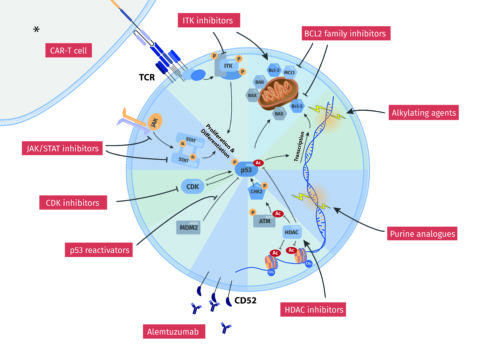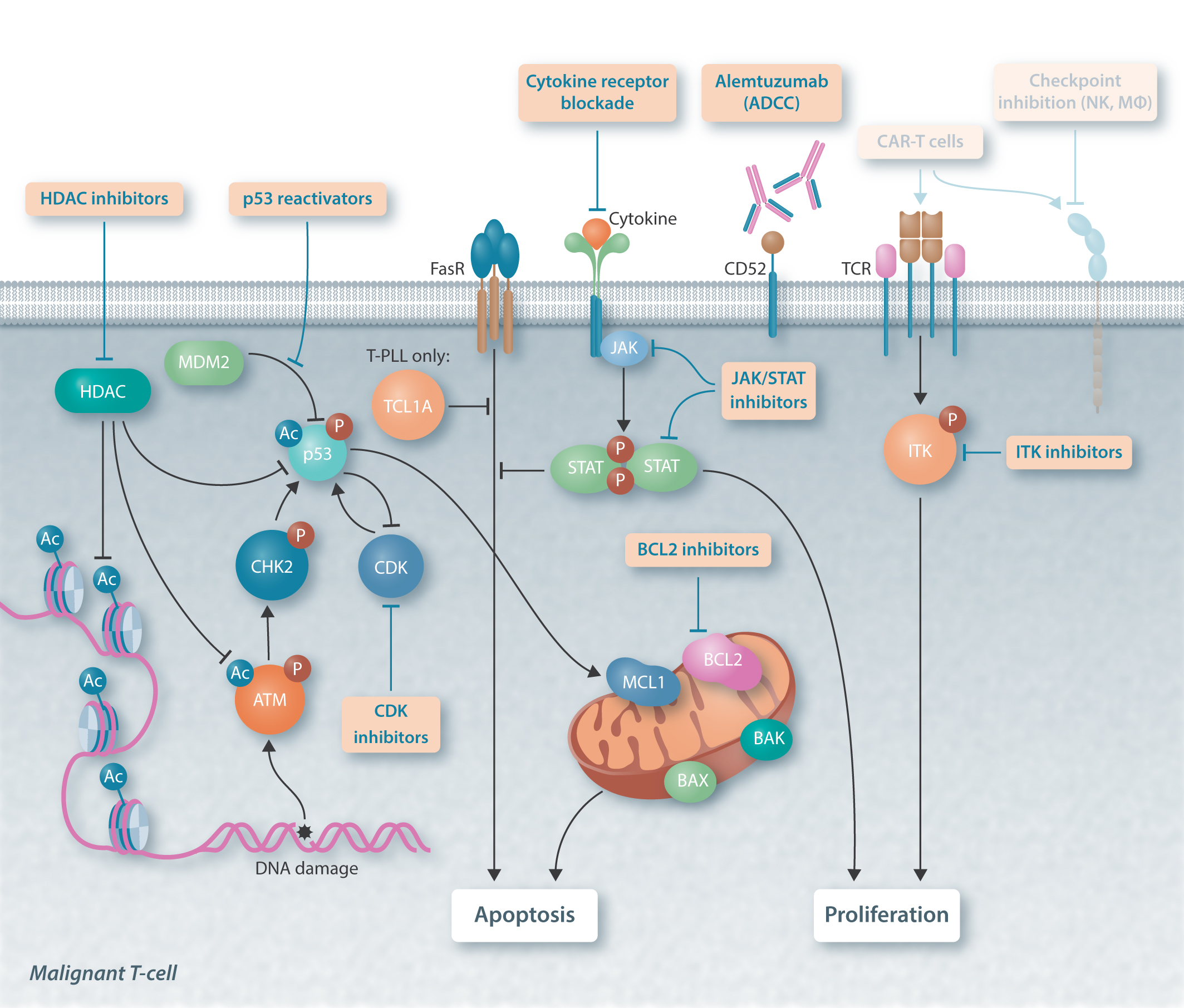Advances and Perspectives in the Treatment of T-PLL
Abstract:
T cell prolymphocytic leukemia (T-PLL) is a rare mature T cell tumor. Available treatment options in this aggressive disease are largely inefficient and patient outcomes are highly dissatisfactory. Current therapeutic strategies mainly employ the CD52-antibody alemtuzumab as the most active single agent. However, sustained remissions after sole alemtuzumab-based induction are exceptions. Responses after available second-line strategies are even less durable. More profound disease control or rare curative outcomes can currently only be expected after a consolidating allogeneic hematopoietic stem cell transplantation (allo-HSCT) in best first response. However, only 30-50% of patients are eligible for this procedure. Major advances in the molecular characterization of T-PLL during recent years have stimulated translational studies on potential vulnerabilities of the T-PLL cell. We summarize here the current state of “classical” treatments and critically appraise novel (pre)clinical strategies.
Read the full article:
Advances and Perspectives in the Treatment of T-PLL
Published under a Creative Commons Attribution 4.0 International License















